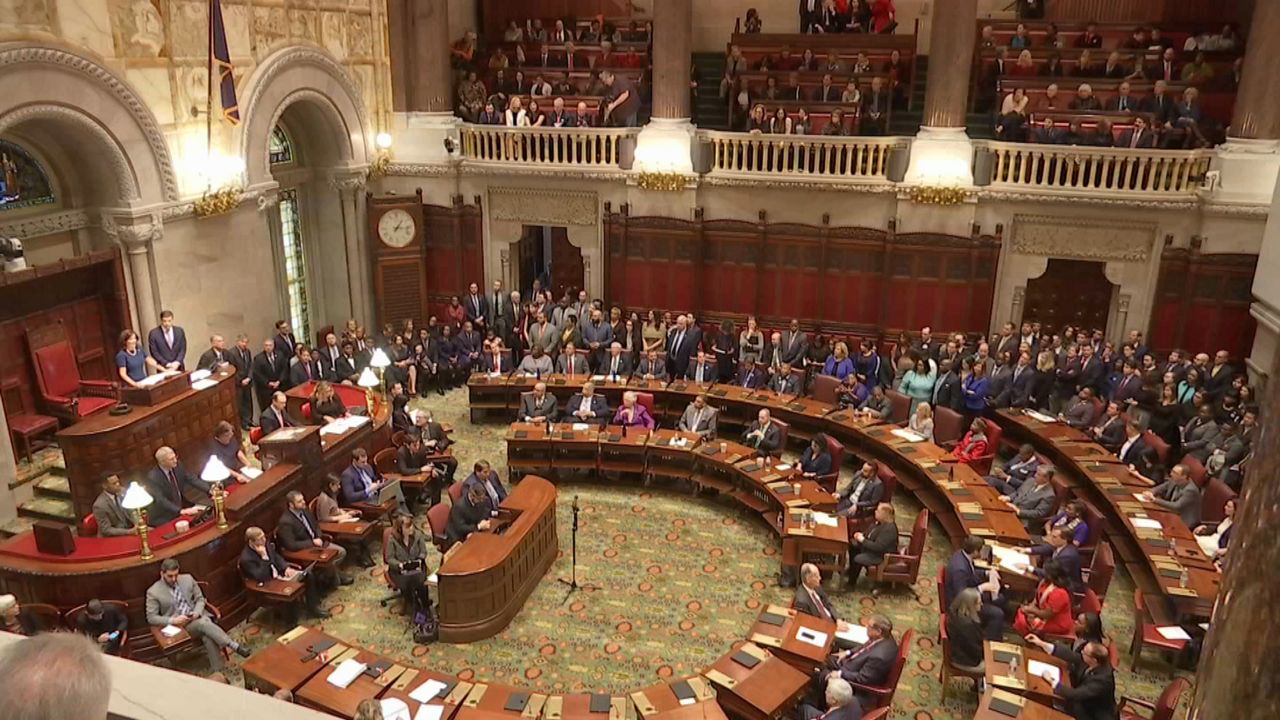State lawmakers are discussing the possibility of single-payer health care in New York. While, in theory, it would grant access to health care for all New Yorkers, it would also come with a hefty price tag.
"There is always a catch,” said President and CEO of New York State Health Foundation, David Sandman. “We would instead have to pay for health care with a massive new tax increase in the state—a tax increase of at least 156%, more than doubling the state budget."
But while lawmakers debate the merits of what is at best a very ambitious plan to overhaul the state's health care system, they are having a more immediate crisis closer to home. Despite the fact that there is a massive measles outbreak, neither the Assembly nor the Senate can seem to pass a bill that would end religious exemptions for vaccinations. The cases are clustered in Brooklyn's Orthodox Jewish community.
"It is still in committee in both houses,” said State Senator Brad Holyman. “But we are hopeful with some new voices on this issue we can push it forward across the finish line in the remaining days of session."
The bill's sponsors held a press conference with children whose immune systems have been compromised due to other illnesses. They would be particularly vulnerable to a measles outbreak if they went to school with kids who were not vaccinated.
"My name is King. I'm 5-years-old. I'm fighting Leukemia," said one child in attendance.
The bill has faced opposition from those who object to mandatory vaccinations.
The bigger holdup is in the Assembly. Some have suggested the Senate, which has the votes, should simply pass the bill to force the Assembly’s hand.
"I think everybody is going to vote the way they think is best,” said Assemblyman Jeff Dinowitz. “And it's my job to try and convince people to vote the right way, both in committee and on the floor."
The bill is not on the agenda in the Assembly this week, and the earliest it could be taken up is next week when the Assembly Health Committee meets. Time is of the essence there are only 13 session days left on the calendar.
As Lawmakers Debate Universal Healthcare, Measles Legislation Languishes
PUBLISHED 6:35 PM EDT May 28, 2019



